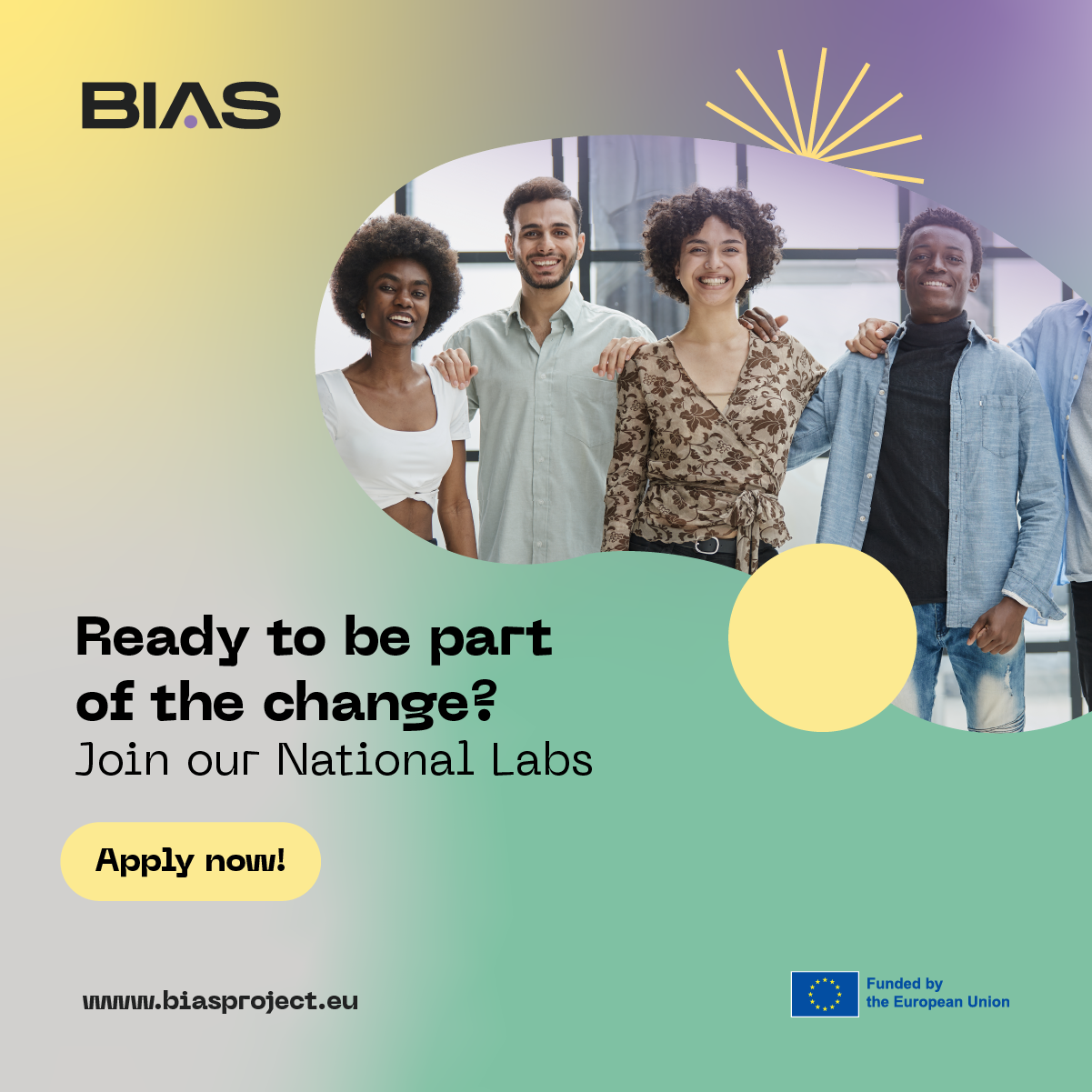26th September 2024
Stakeholders from HR, AI, scholars, worker organisations, and related fields are invited to collaborate on mitigating diversity bias in AI-driven recruitment processes.
The EU-funded BIAS project has launched a network of National Labs to bring together stakeholders from diverse sectors to combat algorithmic biases in recruitment and human resources management (HRM). The project aims to empower professionals by fostering collaboration in the development of innovative tools and strategies, including its technical solutions, which seeks to improve fairness in AI-driven recruitment decision-making.
The BIAS project is now actively seeking stakeholders—individuals and organisations alike—who are passionate about shaping the future of AI in the labour market. These include individual workers, jobseekers, AI developers, HR professionals, policymakers, scholars, advocacy groups, trade unions, and investors. Through interdisciplinary collaboration, stakeholders will support European missions of reducing bias in AI systems used for hiring and recruitment.
The BIAS project has established seven National Labs across Europe in Estonia, Iceland, Italy, Norway, Switzerland, The Netherlands, and Türkiye, with an additional international lab addressing countries outside these regions. These labs will serve as hubs for engagement, innovation, and the exchange of ideas around bias mitigation in AI, while also keeping participants informed about the activities and outcomes of the BIAS project
Stakeholders who join the National Labs will have the opportunity to:
By joining the National Labs, stakeholders will play a key role in shaping AI-driven recruitment tools and practices, offering their expertise to identify and address diversity biases in the labour market. This collaborative effort aims to mitigate the harmful effects of these biases on underrepresented groups in the workforce.
Interested parties can register for their respective National Lab through the official BIAS project website, which only takes a couple of minutes.
Know more about the BIAS project here: https://www.biasproject.eu/
